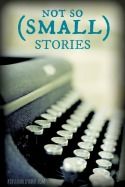I was lucky enough to be a very early adopter of Twitter, though in the early days we weren’t particularly brilliant in our communication. Behold, my first tweet – I know, underwhelming.
On my way to pick up Kyler, don't want to be late on the first day back from the holiday. Wondering if this is how twitter works?
— Kami Huyse (@kamichat) January 2, 2007
We DID learn how to use Twitter to connect fairly quickly, but we found it lacking in a lot of features, including a simple way to follow a conversation. At the time, the convention of using @kamichat to tag people into a conversation wasn’t in wide use yet, though Robert Anderson had started to use it the year before. When I came on the scene, people might use the space between @ kamichat or the more modern use of @kamichat, there was no convention yet and Twitter didn't track it for you. We used a third-party Twitter search tool that was eventually purchased by Twitter.
@ buzz – you broke your thumb and youre still twittering? that's some serious devotion
— Robert Andersen (@rsa) November 3, 2006
In August of 2007, Chris Messina asked the question, can we use the pound sign as a way to track conversations between groups?
how do you feel about using # (pound) for groups. As in #barcamp [msg]? — Chris Messina™ (@chrismessina) August 23, 2007
Twitter users picked up on this convention pretty quickly, using hashtags mostly for events and specific conversations, or Tweetchats. Twitter didn't incorporate it officially as linked content until 2009.
The Life of a Hashtag
Since that time, the hashtag has taken on a life of its own, and most social platforms provide support for it, even the latecomer Facebook. And there is an entire economy of tools that are designed to read hashtags and aggregate a story. But you probably will agree that the use of hashtags has gone far beyond a simple way to group conversations. It has also become a language of its own. Trending topics on Twitter pull together the spontaneous use of identical hashtags in response to current events, and people have adopted hastags as a kind of language. One colorful example of this was when actor Charlie Sheen had an online breakdown in 2011 after losing his job, using the hashtag #winning, which became a rally cry across the internet, and is still widely used today.
Winning..! Choose your Vice… #winning #chooseyourvice http://twitpic.com/455ly9
— Charlie Sheen (@charliesheen) March 1, 2011
The Language of Hashtags
As far as Twitter brought the hashtag, it is even more important on the popular Instagram platform. Here is one sample from my feed this morning. These hashtag stuffed posts are very common on Instagram and are totally acceptable, it is how community happens on that platform, and how people find you. Instagram uses the hashtag for a weekly assignments competition that both drives content and community. Hashtags have become a language of sorts, with its own syntax and meaning.
Cultural Adoption
It is now not unusual to see hashtags everywhere, in television advertisements, on popular television shows, and even on car windows as a protest. Last week, I noticed two different vehicles had the hashtags, #Pray4Venuzuela and #SOSVenezuela. In just a few minutes I was able to see the chatter about #Pray4Venezuela, see what was being written on Tumblr, read this news report and even watch this touching video of students from many cultures asking Venezuelan’s to hold out hope.
Do you use hashtags and how do you use them in your communication?




Wow! Thank you for the informative history of hashtags (aka the pound sign 😉 ). As you can tell from my old-school reference, I’m relatively new to twitter and using hashtags. I’ve learned to use them on twitter (although sometimes I forget), I don’t use them on Facebook and I’m not really into Instagram. I did read somewhere the one should not use more than three hashtags per tweet, so I try to limit myself ;).
This is so interesting. Thanks for sharing.
I have never heard the history of hashtags- loved this. And yes, I use them. All the time on Instagram. I love the communities that are built around hashtags on Twitter. It is a brilliant connection tool. Not sure I use the language well, but when I find myself thinking in terms of hashtags, I realize that I am probably getting fluent in this strange language!
It depends on the venue – Instagram, I’ll use them a little more less formally… more joking, snarky or funny. But Twitter, since hashtags have been raised to what feels a little more formalized, I’ll stick with easily searchable or trending hashtags. Facebook? I don’t use them there. The vehicle is just not the same. Cool post!
Took me a while to get to this, but thanks for sharing, very interesting. I am really bad at social media so I use hashtags poorly 🙂 But I’m learning!
This was fascinating to me! I’m a nerd, but YOUR kind of nerd, right? This really was cool, and I love that you have the first tweet ever asking about hashtags—so cool to see that. Watching the way technology develops is really amazing because it’s so fast. I got into twitter way late, and mostly understand the use, but still find out new things. I love the way you tied language into this post and the way you set it up. Great read!